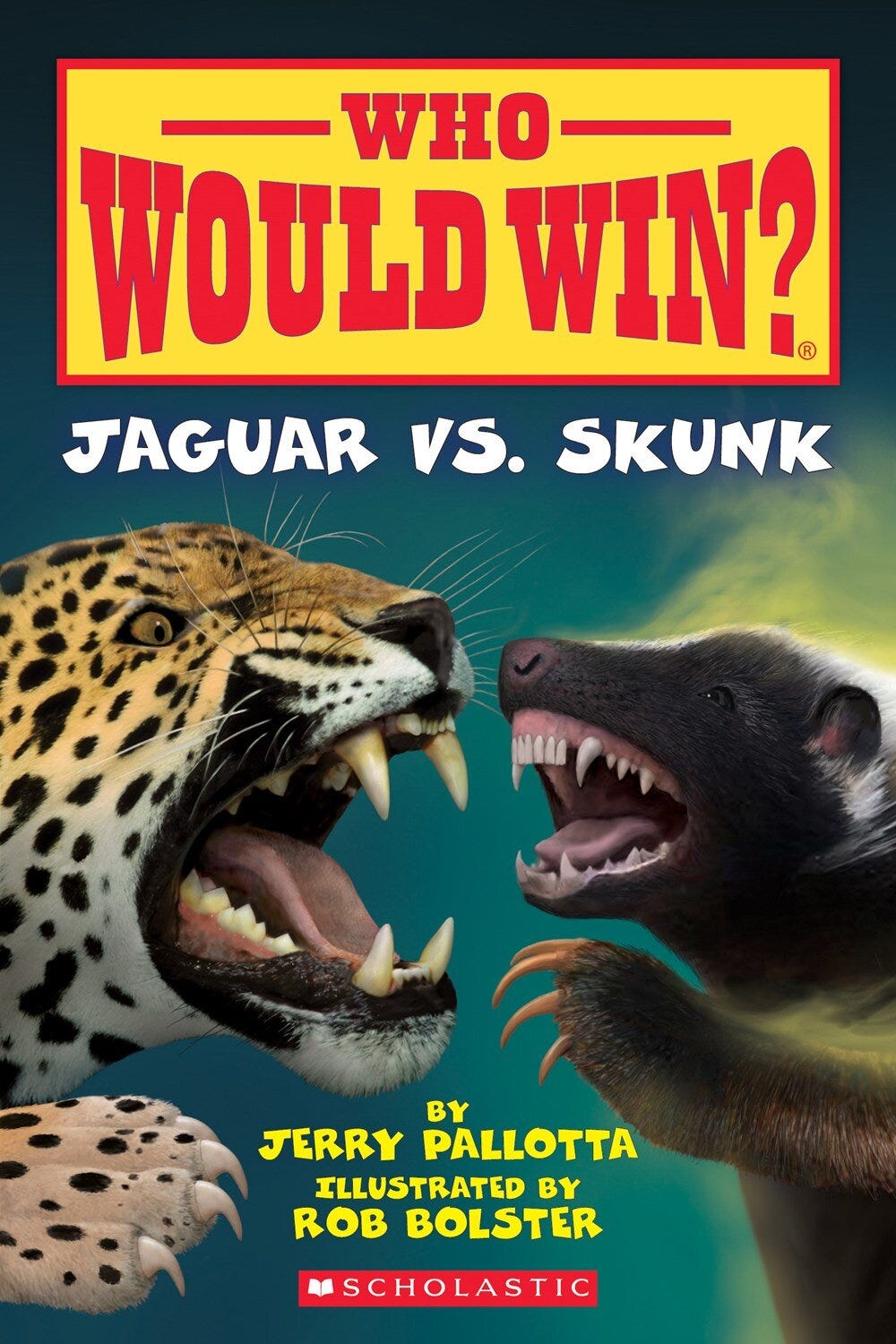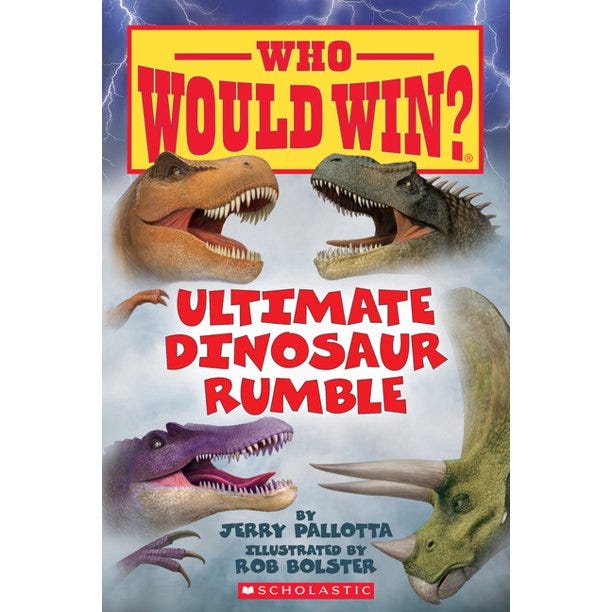Who Would Win?
Irresistible subject matter for kids in certain phases
This is one I kind of just need to get out of my system. If you make it to near the end you’ll get the most useful part of this review. For now, it’s time for…
The Series: Who Would Win?
The Author: Jerry Pallotta
The Illustrator: Rob Bolster
Length/Picture Density: 32 pages, pictures on every page
Fact: The Who Would Win series does not really fit into the general purview of this newsletter.
Reading Fact: I have read many books from this series. Perhaps, too many.
Fact Fact: Much of the content in these books is delivered in bubbles with labels like “surprising fact” and “strange fact.”
The Who Would Win series imagines battles between animals who in most cases would never face each other. They are often creatures indigenous to different regions or dinosaurs that lived at different times. After all, it’s not “Who Does Win.”
The battle is actually only the last quarter or so of the book. The rest is filled with Facts. These are mostly facts about the animals’ biology, habitat, speed, defenses, diet, related species, etc. It’s not an in-depth report on the animals, but you do come away knowing more about them than when you started. For instance, hyenas often hunt their prey by wearing them down until they get too tired to run away. And one time a honey badger was seen biting a lion on the nose!
The battles inevitably involve animal carnage, and only sort of lean on the facts provided earlier in the book. The question of which animal will win does provide an open question about what’s going to happen that makes you want to get through the book, even if part of you doesn’t actually want to see the two creatures battle.
Then again, maybe you just want to see the battles without too many facts getting in the way. Then you can check out the rumble books within this series.
These versions pick a theme like “ocean” or “bug” and have a series of one-page battles until there is an ultimate winner. The fact to carnage ratio goes way down with those.
Certain things tap into a part of kids’ brains. Some get obsessed with trucks. For some it’s animals or dinosaurs. A lot of them do all of those in overlapping phases. There’s a reason that you can take any combination of robots, dinosaurs, and trucks and there will be at least one show about that.
The Who Would Win books unabashedly go for one of those obsession categories. It’s up to you how to handle those, but just be warned that once you open that door, it’s not always easy to close.
Once you get into these books, you find that they don’t actually take themselves that seriously. There are random asides and self-referential jokes. None of it is especially clever, but it does seem like the author is trying to entertain himself after coming up with a winning formula that could be pretty tedious to repeat over and over.
Bonus Fact: Because I feel silly for writing a review of these books, I’ll throw in another that also doesn’t fit under the chapter book umbrella, but gets my highest recommendation: Pretend Soup.
It’s a cookbook that kids can use. The instructions are simple, just a few words and a simple drawing for each step. It has inspired my mostly green-averse son to cook and eat zucchini on multiple occasions. It rewards instruction following and executive function in a very tangible way. The recipes aren’t half bad either!
Both books are on a table. Neither is looking for a fight. They are books. But they also know that the publishing industry is tough, and they have evolved over years of publishing standards and marketing iterations to appeal to customers. A parent and child approach. They notice the colorful illustrations coming from the table. They are both instinctively drawn toward it. They cannot decide which book to pick up first.
Suddenly another person walks by and absentmindedly flips open Pretend Soup. They do not read it, but it remains open to the Popover page.
“What’s that?” the child asks.
“It looks like a recipe for popovers,” says the parent. The child finds that they can understand many of the instructions.
“Do we have the ingredients for this?”
The parent scans the page.
“We do.”
“Let’s get it!”
“Okay.”
The parent buys Pretend Soup, plus a mystery a friend recommended.
Pretend Soup wins!


